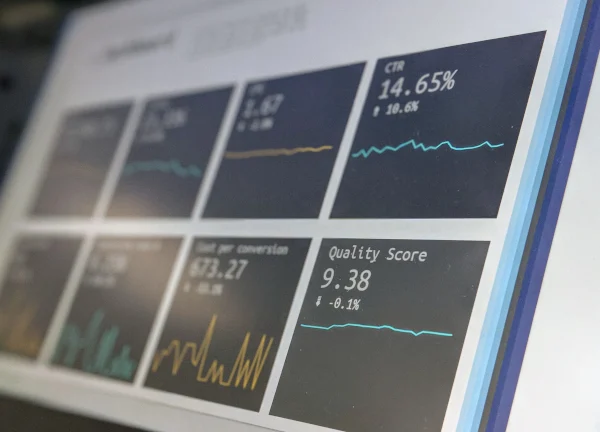Are you struggling to get your website to rank higher on search engines? Do you want to attract more organic traffic to your site? If so, then you need an effective SEO strategy.
SEO, or search engine optimization, is the process of optimizing your website to improve its visibility and ranking on search engine results pages. It involves a range of techniques and tactics designed to help your website rank higher for relevant keywords and phrases.
In this article, I’ll provide more detailed answers to ten key questions about SEO strategy, from the basics to the latest trends and best practices.
- What is SEO, and why is it important for businesses?
- What are the key components of an effective SEO strategy?
- How can businesses conduct keyword research to identify the best keywords to target?
- What are some on-page optimization techniques that can improve a website’s search engine ranking?
- How can businesses create high-quality, relevant content that appeals to both search engines and users?
- What are some off-page optimization techniques that can help to improve a website’s search engine ranking?
- How can businesses measure the success of their SEO efforts?
- What are some current trends in SEO, and how can businesses adapt their strategy to keep up with these trends?
- How can businesses optimize their website for local search?
- What are some common mistakes that businesses make when implementing an SEO strategy, and how can these be avoided?
- Conclusion
What is SEO, and why is it important for businesses?
SEO is the practice of optimizing your, or any, website and its content to improve its visibility and ranking on search engines. Or, said a little differently, the goal of SEO is to show up, ranked highly, on Search Engine Results Pages (SERPs), organically. A properly developed SEO campaign will focus on 4 core pillars:
- Technical SEO – makes it easier for search engine bots to discover, crawl, and index your pages. Page loading speeds, mobile optimizations, sitemap, and crawlability are all important factors for technical performance.
- On-Page SEO – (also referred to as on-site SEO) deals with the content of the individual pages. Terms such as keywords, meta-tags, meta-descriptions, page titles and more all effect this arena.
- Content – high-quality content that answers users questions or concerns in a space is key. Great thing to remember is that the content you create is relevant, rich, and recent.
- Off-Page SEO – everything that is not on your own website but matters about your standing with search engines. Things such as backlinks, reviews, social signals, and local search all fall into this category.
It’s important for businesses because it can help to increase organic traffic to your site, which can lead to more leads, sales, and revenue. By ranking higher on search engine results pages, you’ll be more visible to potential customers who are searching for products or services like yours.

What are the key components of an effective SEO strategy?
As mentioned earlier, an effective SEO strategy typically includes keyword research, on-page optimization, content creation, link building, and analytics tracking to ensure improvements have the desired result. The reason these items require attention and consideration are that we are attempting to create the best resource for a desired audience to find! We want to become the best source of education, information, engagement, and more for our online audience.
Keyword research involves identifying the best keywords and phrases to target for your business, while on-page optimization involves optimizing your website’s content, meta tags, and other elements to make them more search engine friendly. Content creation involves creating high-quality, relevant content that appeals to both search engines and users, while link building involves acquiring high-quality backlinks to your site. Analytics involves measuring the success of your SEO efforts and making adjustments as needed.
How can businesses conduct keyword research to identify the best keywords to target?
Businesses can conduct keyword research using a variety of tools, some free and some are paid services (although they may offer a free trial period). But, the easiest way to get started is to study their competitor’s websites and SERPs related to their industry, niche, or market.
Some of the most common keyword research tools are:
- Google Keyword Planner
- Google Trends
- SEMrush
- Ahrefs
- Moz Keyword Explorer
When conducting keyword research, it’s important to focus on keywords that are both relevant to your business and have a high search volume and low competition. What we are attempting to establish is a general understanding of what your audience is searching for, how often they are searching, who is getting the current traffic for these queries, and what are the opportunities to provide additional information or improve the presentation of the information. The answers to these questions are going to influence what keywords are selected, how our site needs to be structured, and how we can differentiate ourselves online.

What are some on-page optimization techniques that can improve a website’s search engine ranking?
On-page optimization techniques include:
- Optimizing meta tags, such as title tags and meta descriptions
- Using header tags, including relevant keywords in your content
- Using descriptive URLs (also known as slugs)
- Properly titling images
- Improving page load speed
- Prioritizing a mobile-friendly website
It is critical to ensure that your website’s content and structure are organized in a way that is easy for search engines and users to understand and crawl (find additional information).
How can businesses create high-quality, relevant content that appeals to both search engines and users?
Businesses can ensure they are creating high-quality, relevant content by:
- Conducting keyword research to identify relevant topics and keywords
- Creating content that is unique and valuable to their audience
- Using descriptive headlines and subheadings including images and other multimedia elements
- Optimizing content for readability and SEO
Your content should exude value to your audience and answer their questions, whilst also being optimized for search engines. Search engines tend to favor resources that provide detailed but approachable answers to user queries. Afterall, they want to provide great results for their users and rely on others to provide them.

What are some off-page optimization techniques that can help to improve a website’s search engine ranking?
Off-page optimization techniques include:
- Acquiring high-quality backlinks to your site from other relevant websites
- Using social media to promote your content and engage with your audience
- Participating in online communities and forums
- Guest blogging on relevant websites
It’s important to focus on building high-quality backlinks from reputable websites that are relevant to your business and industry. A great starting point are local directories and citation sites such as Google Maps, Bing Places, Yelp, Yellow Pages, Super Pages, and more. You can easily find lists of the ‘most common free business directories online’ and submit your listing request to them.
How can businesses measure the success of their SEO efforts?
Also known as Key Performance Indicators (KPIs), businesses can measure the success of their SEO efforts using a variety of tools, including Google Search Console, Google Analytics, SEMrush, Ahrefs, and Moz. They can track metrics such as organic traffic, keyword rankings, backlinks, and conversions. It’s important to regularly review these metrics and make adjustments to your SEO strategy as needed based on your results.

What are some current trends in SEO, and how can businesses adapt their strategy to keep up with these trends?
Some current trends in SEO include the growing importance of local search, the rise of voice search, the increasing emphasis on user experience, and the need for mobile optimization.
To adapt to these trends, businesses can optimize their website for local search by creating a Google Business Profile listing and ensuring that their Name, Address, and Phone number (NAP) is consistent across all online directories and listings.
Another trend in search is optimizing for voice search by using long-tail keywords and natural language phrases. The use of virtual assistants in the home, cell phones, and computers have ushered the need to be relevant for speech-based search queries.
In the past, the quality of the content wasn’t as heavily considered as it is today. We used to be able to just state a keyword repeatedly on a page and get a higher ranking. But, times change and search engines no longer reward this behavior.
Finally, they can ensure that their website is optimized for mobile devices by using a responsive design and ensuring that their website is easy to navigate on smaller screens. Be mindful of templates chosen and website builders that exist. Some may not allow you to alter source code to create improvements in mobile displays or responsiveness.
How can businesses optimize their website for local search?
To optimize a website for local search, businesses can create a Google Business Profile listing (for FREE) and ensure that their NAP is consistent across all online directories and listings. They can also include location-specific keywords in their content and meta tags, and create location-specific pages on their website. It’s also important to focus on building high-quality backlinks from local sources, such as local business directories and community websites.
If you are new to Local Search Engine Optimization, we can recommend a couple of paid services that will help guide you out of the gate:
- BrightLocal
- MozLocal
These services can teach you how to improve your local search ranking on maps applications like Google Maps, Apple Maps, and Bing Places to allow you to attract clientele based upon the users’ proximity to your location.

What are some common mistakes that businesses make when implementing an SEO strategy, and how can these be avoided?
Common SEO mistakes are something we have written about previously, but in case you missed our article on the subject; the most common SEO mistakes are:
- keyword stuffing
- using low-quality or irrelevant backlinks
- neglecting mobile optimization
- failing to track and measure the success of their SEO efforts
To avoid these mistakes, businesses should focus on creating high-quality content and acquiring high-quality backlinks, ensure that their website is optimized for mobile devices, and regularly track and measure their SEO metrics. Stay up to date with the latest trends and best practices in SEO, as search engine algorithms and user behavior are constantly evolving, however if you follow the guidance outlined above, you will be in the safe-zone for algorithm changes and come-out on-top long term!
Conclusion
In conclusion, an effective SEO strategy is essential for businesses that want to attract more organic traffic to their website and increase their visibility and ranking on search engines. By following these key components and best practices, businesses can create a comprehensive SEO strategy that helps them achieve their goals and grow their online presence. It’s important to continually monitor and adjust your SEO strategy to ensure that it remains effective and relevant over time.
Would you like someone to simply make your website the best resource for your audience? Look no further than the fantastic team of SEO-experts at CodingIT. Drop us a line to get your FREE SEO Audit!
